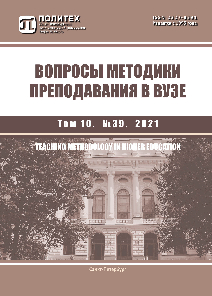Teaching audiovisual translation to digital natives at the time of the cognitive revolution
The article is outlining new approaches to teaching audiovisual translation in higher education establishments in the era of the so-called cognitive revolution. It is highlighted that the advent of the new technological paradigm worldwide results in the need for a drastic review of teaching curricula and methods for translation as well as for most other university subjects. 8 key components of the cognitive revolution are considered in relation to the cognitive profiles of modern students that influence the transfer and adoption of new knowledge and skills. Those are: the switch from books as the main source of knowledge to audiovisual productions of various types; The active use of social networks and instant messengers as the main interpersonal communication channel; The changes in the motivational sphere under the influence of throughout gamification of everyday life; Instant access to any information upon request via search engines; Rapid decrease in the need to memorize anything in the process of studies as everything is available on Internet; The emergence of pervasive copy/paste culture of processing information without its analysis or evaluation depriving students of learning and problem solving motivation in the «old» sense of the word; Customized clasterization of students by their interests outside the classroom; Acceptability of «multiple realities»; Emergence of a universal emoji and meme language that goes across the borders as a new format of hieroglyphic communication incorporating complex static or dynamic mix of verbals and visuals. All abovementioned changes pose a lot of new tasks for teachers of translation and call for the search of innovative methods and approaches to teaching the students of the new generation who are digital natives. A conclusion is made that today any effective translation teaching process must take proper consideration of the following factors: Rapid growth in the amount of materials to be studies; Drastic change in the cognitive and learning behavior of students that renders ineffective many earlier teaching methods, models and exercises; Two way change in the duration of studies. On the one hand, the acceleration of technological development shortens the effective teaching period and on the other hand, more mechanisms of lifelong learning are needed to catch up.



